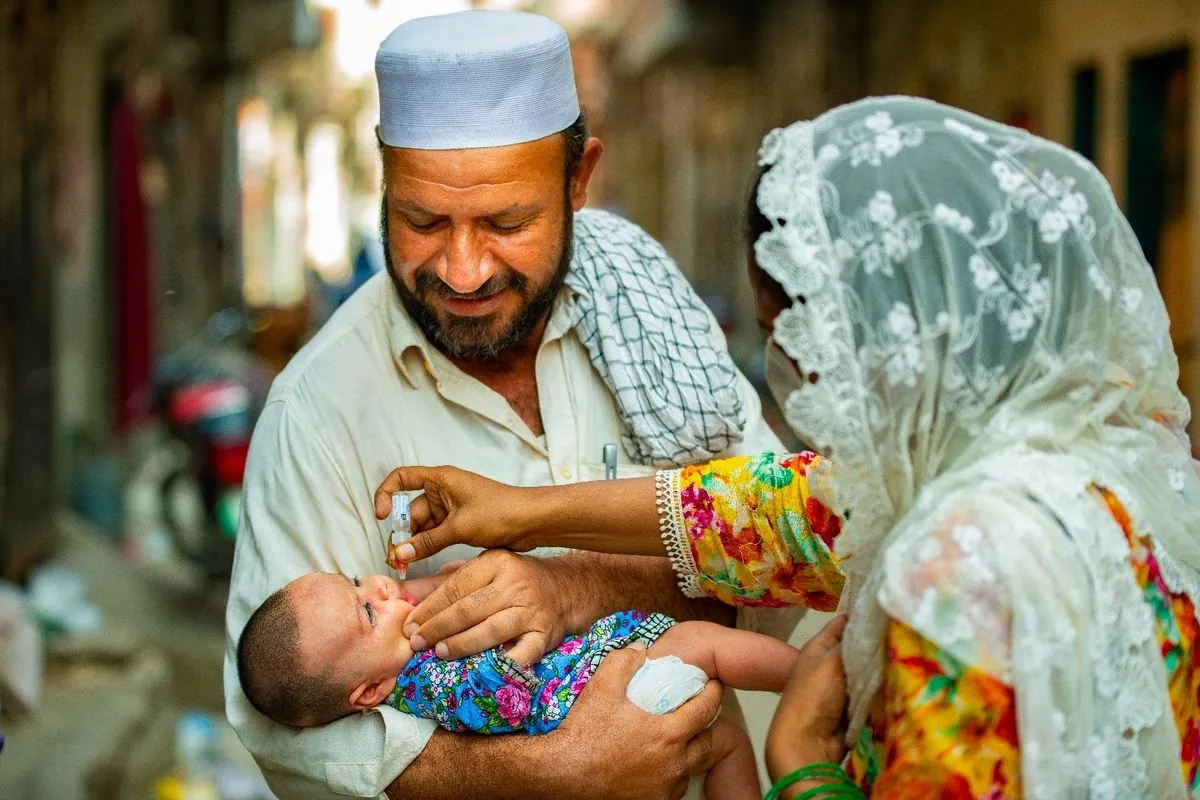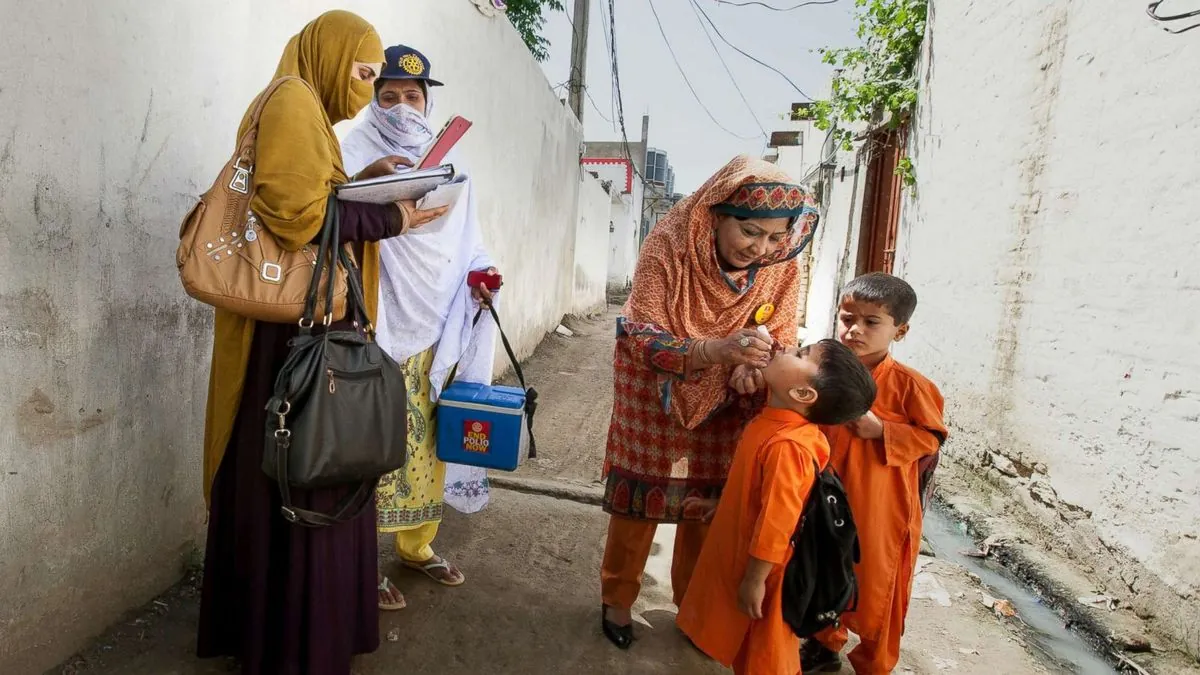Polio Workers Under Attack: Two Deadly Incidents in Pakistan
Gunmen target polio vaccination teams in Pakistan, killing three. Recent attacks highlight ongoing challenges in the country's efforts to eradicate the disease amid security concerns and misinformation.

In a concerning development for Pakistan's polio eradication efforts, two separate attacks on vaccination teams have occurred within a 48-hour period. These incidents underscore the persistent challenges faced by health workers in the country's fight against the debilitating disease.
On Thursday, a policeman guarding polio workers in Bannu, Khyber Pakhtunkhwa province, was fatally shot by motorcycle-riding assailants. This attack followed a similar incident in Bajur on Wednesday, where gunmen killed a polio worker and a police escort.
These violent acts have heightened fears among polio workers and threaten to impede the progress of a nationwide vaccination campaign launched earlier this week. The campaign aims to protect children under five from the potentially fatal, paralyzing disease that typically spreads through contaminated water.

Pakistan's polio eradication program, initiated in 1994, has made significant strides, reducing cases by 99% since 1988. However, the country remains one of only two nations, alongside Afghanistan, where polio transmission has not been halted. Since January 2024, Pakistan has reported 17 new polio cases, jeopardizing decades of eradication efforts.
The recent attacks are part of a troubling pattern of violence against anti-polio campaigns in Pakistan. Militants falsely claim that these initiatives are Western conspiracies to sterilize children, leading to targeted attacks on vaccination teams and their police protectors.
"Despite these challenges, we remain committed to achieving polio-free status by 2026. Our frontline workers continue to show immense courage in the face of adversity."
The country's polio program employs over 260,000 frontline workers who conduct regular national immunization days. In 2015, Pakistan introduced the injectable inactivated polio vaccine (IPV) to boost immunity, complementing the oral polio vaccine (OPV) containing weakened live poliovirus.
To enhance detection efforts, Pakistan has established a network of environmental surveillance sites. These measures, combined with increased security for vaccination teams, aim to overcome the obstacles posed by misinformation and security concerns.
As Pakistan strives to join the ranks of countries that have successfully eradicated polio, the recent attacks serve as a stark reminder of the complex challenges that must be addressed to achieve this crucial public health goal.


































